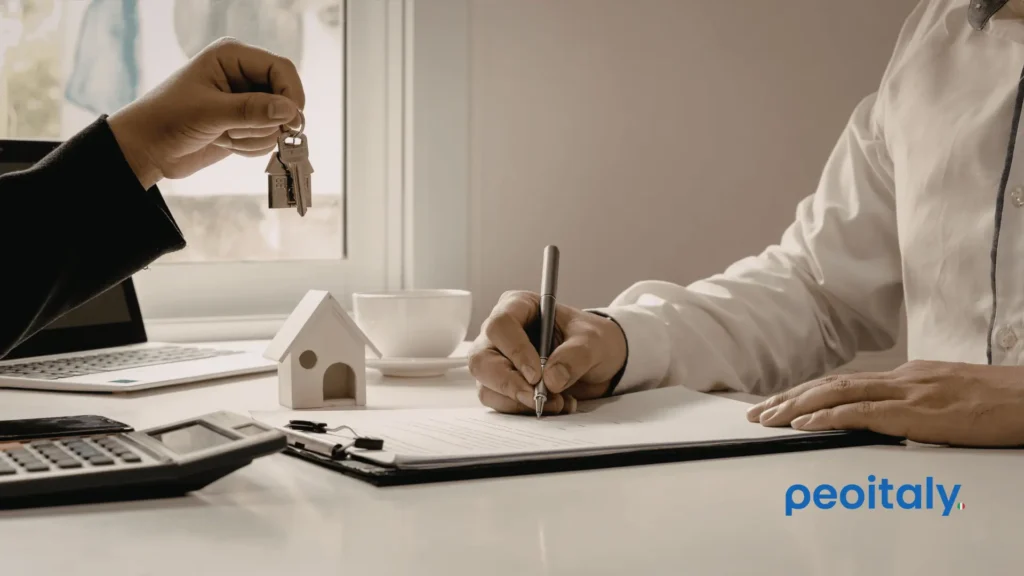Yes, we know – Italy is an attractive destination for businesses looking to expand their operations. However, the process of opening a company in Italy can range from straightforward to highly complex, depending on factors like company structure, notarial requirements, and industry regulations.
So before you start, it’s important to understand the nuances of Italian bureaucracy. In this article, we’ll walk you through the key considerations and potential pitfalls of forming a company in Italy, so you can get it right the first time.
The Process of Forming a Company in Italy
The timeline for forming a company in Italy can vary widely. While some businesses can be established in as little as two weeks, others may take several months, depending on the complexity of the setup.
Key factors affecting the timeline include:
- The Type of Company You Choose: Whether you’re forming an SRL (Limited Liability Company) or an SPA (Public Limited Company), the requirements and processes differ. An SRL, for example, is generally faster and simpler to set up.
- The Notarial Process: Signing the necessary documentation in front of a notary can be time-consuming, particularly if you include specific clauses in your company’s bylaws. Custom clauses often require additional reviews and may prolong the process.
- Documentation and Paperwork: Beyond the notary’s involvement, most of the paperwork—such as obtaining a tax code and registering the company with the Chamber of Commerce—is typically completed within a few weeks.
While these steps are manageable with proper planning, the complexity often lies in compliance with industry-specific regulations.
Registration in the Italian Business Register is mandatory for all entrepreneurs engaging in activities such as production of goods and services, intermediation in the circulation of goods, and transportation.
Is Your Activity Subject to Licensing?
One of the most critical aspects of opening a business in Italy is determining whether your intended activity requires a specific licence or authorisation. Certain industries, such as tourism, healthcare, and food services, are highly regulated and require approvals from local authorities before operations can begin.
A real-life example:
A competitor once reached out to us after making a costly mistake. They helped a client set up a business in Italy and hired staff, only to discover later that the client’s activity—operating as a tour operator—was a licensed profession. Without the required authorisation, they faced severe consequences, including:
- Heavy Fines: The local authorities imposed significant financial penalties.
- Forced Closure: The business was ordered to shut down until proper licensing was obtained.
This underscores the importance of thoroughly researching licensing requirements for your industry before registering your company.
How to Avoid Common Pitfalls
Opening a business in Italy requires meticulous planning to avoid delays and legal issues. Here are some steps to ensure a smoother process:
- Research Licensing Requirements: Before anything else, determine if your business activity is regulated. Industries like tourism, transportation, and certain professional services often require licences.
- Work with Local Experts: Engage with local accountants, lawyers, and consultants who understand Italian bureaucracy. They can guide you through the licensing and registration processes.
- Choose the Right Company Structure: Depending on your business goals, decide whether an SRL, SPA, or another form of entity is most suitable. Each has its own advantages, disadvantages, and compliance requirements.
- Simplify Your Bylaws: When drafting your company’s bylaws, avoid overly complex clauses unless absolutely necessary. Simple bylaws are easier to process and won’t delay the notarial step.
- Plan for Bureaucracy: Understand that some processes in Italy may involve face-to-face interactions, physical signatures, or specialised procedures. Having local professionals who know how to navigate this system will save you time.
The Impresa in un Giorno portal provides valuable information about and immediate access to online procedures to take care of all necessary steps, including setting up a business or applying for licences and permits from local authorities.
Why Local Expertise Matters
The Italian system often relies on in-person interactions and relationships with local authorities. This is where having a local expert makes all the difference.
- Faster Processing: Local professionals can liaise directly with notaries, the Chamber of Commerce, and government offices to expedite processes.
- Accurate Compliance: They can ensure that all documentation is correctly filed and that licensing requirements are met.
- Preventing Mistakes: Local experts can identify potential issues, such as missing licences or improper registrations, before they escalate into costly problems.
For example, if your managing director or legal representative isn’t based in Italy, even simple tasks like obtaining a digital signature can cause delays. A local presence can overcome these logistical challenges efficiently.
What Are the Risks?
Failing to comply with Italian regulations can lead to serious repercussions. If your business is found to be operating without the proper licence or registration, you may face:
- Financial Penalties: Fines for non-compliance can be substantial, eroding your profitability.
- Operational Shutdowns: Authorities may force your business to cease operations until you meet all requirements.
- Reputational Damage: Being flagged for non-compliance can harm your brand’s reputation, both locally and internationally.
As the real-life example of the unlicensed tour operator demonstrates, the consequences of oversight can be severe. This is why planning, research, and working with knowledgeable professionals are essential.
Opening a business in Italy offers exciting opportunities, but it requires careful navigation of the country’s unique bureaucratic and regulatory landscape. By understanding the licensing requirements, simplifying the setup process, and partnering with local experts, you can avoid costly mistakes and establish your business successfully.
Before registering your company, ensure you’ve thoroughly researched your industry’s licensing requirements and partnered with professionals who understand the intricacies of Italian business law.
Taking the right steps from the beginning will not only save you time and money but also set you
Ready to expand into Italy? Contact Peoitaly today to see how we can help you achieve your goals.



